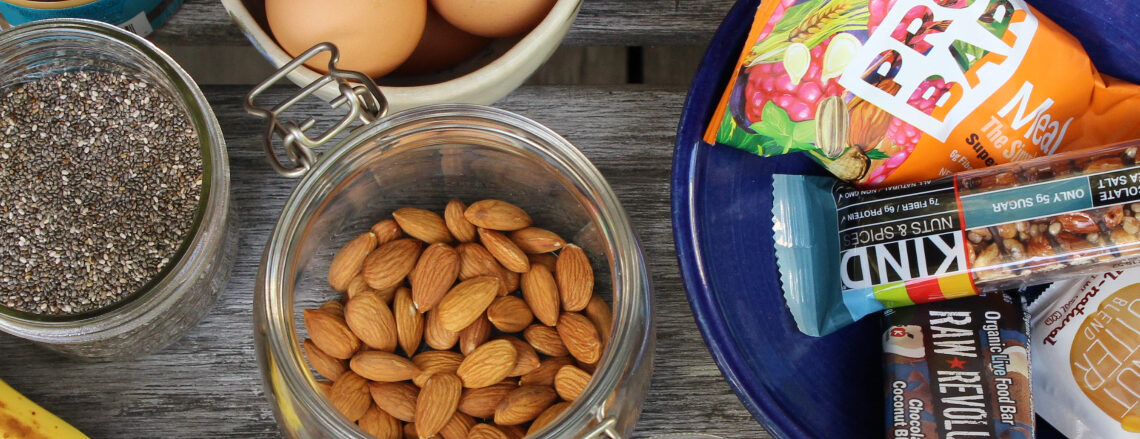5 Reasons to Choose Organic Food
Back in the day, all food was organic food. Produce and livestock were grown and raised without pesticides, herbicides, chemicals, synthetic fertilizers, irradiation, and genetic modification. Foods were unrefined and minimally processed until World War II, when chemical farming and food processing became the new norms.
As a result, the soils and foods of the world have degraded in nutritional quality. Once brimming with vitamins, minerals, and nutrients, the food and soils are now filled with pollutants and farming chemicals.
Denatured Food
The modern processes of heavy refinement and chemical treatment have effectively denatured our food. To denature is to take away or make unnatural the very substances that are meant to help us thrive and keep us healthy and happy into old age.
Pesticides
Pesticides accumulate in the organs, taxing the immune system. [1] They create the conditions for disease and cancer in the liver, kidneys, and blood. With a weakened immune system, the human body has no defense to the carcinogens and pathogens that are normally filtered out of the body.
Five reasons to buy organic food:
-
Organic food does not use conventional agrochemicals.
Instead, organic food is grown, raised, or produced using only approved substances. By definition, pesticides, fungicides, and herbicides are poisons developed to kill living organisms (e.g. insects, fungus, and plants). We are living organisms! Moreover, research indicates links between pesticides and cancer. [2] Unfortunately, many pesticides were approved long before research was conducted to test their safety.
-
Organic food reduces water pollution.
Pesticides pollute drinking water even when they are properly applied. [3] When rain falls before pesticides bind to the plant, the pesticides wash away to surface water sources, such as lakes, rivers, and reservoirs. During the recharging of groundwater and aquifers, pesticides seep into the soil, and contaminate drinking water. Additionally, conventional food systems apply pesticides to lakes and wetlands to control aquatic plant and animal life.
-
Organic farming conserves energy by decreasing carbon emissions and cutting fossil fuel use.
Compared to conventional methods, organic farming increases carbon sequestration. It takes carbon from the atmosphere and locks it into the soil. [4] According to David Pimentel of Cornell University, the transition to organic, local farming reduces energy inputs into the food system by fifty percent. Currently, conventional agriculture accounts for 19 percent of the United States’ energy use. It relies heavily on non-renewable energy sources with an estimated 2,000 liters of oil per year to supply each person’s food.
-
Organic farming systems increase plant resistance and resilience.
Instead of conventional monocultures (e.g. fields and fields of GMO corn), organic farms utilize a mix of diverse plant communities. The diversity boosts plant resistance to disruption by environmental stress (e.g. drought, hurricanes). Additionally, organic plants are more resilient and able to quickly bounce back after environmental stress.
-
Help small farmers make the change from conventional to organic!
The majority of organic farms are small, independently-owned operations. Most organic food is 20-30% more expensive than conventional food, and higher premiums helps farmers boost income. [5] Additionally, organic farming does not require the steep investments associated with chemical farming. Moreover, organic farmers are less dependent on money lenders. Crop failure leads to less losses and debt. Small farmers easily understand the synergy between plant and animal life forms, and can utilize traditional knowledge in organic farming.
What’s your top reason for choosing organic?
References:
[1] https://www.nrdc.org/stories/24-d-most-dangerous-pesticide-youve-never-heard
[2] https://www.nrdc.org/stories/24-d-most-dangerous-pesticide-youve-never-heard
[3] http://npic.orst.edu/factsheets/drinkingwater.pdf
[4] http://land-news.com/photos/organic-farming-yields-far-better-crop-resistance-and-resiliance/
[5] https://www.organicfacts.net/organic-products/organic-cultivation/benefits-of-organic-farming-for-small-farmers.html
Disclaimer: These statements have not been evaluated by the FDA. These products are not intended to diagnose, treat, cure, or prevent any disease.
 FREE shipping on all orders over $49! Get a 1-yr Membership for FREE! Use Coupon code ALYVE49.
FREE shipping on all orders over $49! Get a 1-yr Membership for FREE! Use Coupon code ALYVE49.






